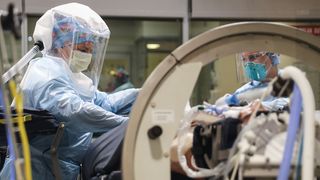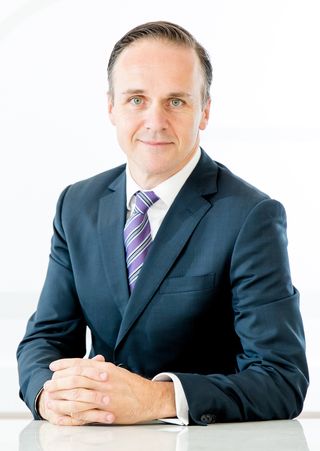Americans have a problem with trust in institutions and experts. During the current pandemic, this lack of trust could be costing them lives.
A recent survey* of more than 2000 Americans and Australians we ran with Andrea Carson from La Trobe University and Leah Ruppanner from the University of Melbourne found people in both countries have similar overall levels of trust in medical experts as a source of information on COVID-19.
In Australia, 68 per cent said they had a lot of trust in medical experts, and just 5 per cent said not much or none at all. In the United States, 61 per cent of respondents had a lot and 10 per cent did not trust medical experts much or at all. However, this hides some key differences between the two countries. In the United States, there are significant divisions that just do not really exist in Australia.
Americans with lower levels of trust in medical experts were more likely to be Republican voters, consume certain types of conservative media and believe the lockdowns instituted to limit the spread of the virus had gone too far.
Americans with lower levels of trust in medical experts were more likely to be Republican voters, consume certain types of conservative media and believe the lockdowns instituted to limit the spread of the virus had gone too far. This is possibly one reason why efforts to combat COVID-19 in the United States have been less successful than in Australia, and why lockdowns have been relaxed in almost every US state despite the coronavirus continuing to spread at more than 20,000 cases per day.
This difference, in part, may stem from the media sources where both Australians and Americans get their information. Those who listed established metro outlets as their main news source had the highest levels of trust in medical experts: the Nine and ACM daily papers and The Guardian in Australia and The Washington Post and The New York Times the United States, for instance. Those with the lowest levels of trust tended to rely upon more conservative (particularly cable) news: Breitbart and Fox News in the United States, and Sky News and The Australian here at home.
The patterns were consistent in both countries, with the audiences of more liberal media outlets more willing to trust expert opinion than their conservative counterparts. However, in the United States, the gap between these two audiences is much larger. The difference in rates of high levels of trust in medical experts between Australians who rely heavily on The Sydney Morning Herald and The Age on the one hand, and Sky News on the other, was just 11 per cent. Americans who rely on The Washington Post, however, were 31 per cent more likely to trust medical experts a lot than Fox News viewers.
The lack of trust in expertise in some quarters has quite arguably brought about the difficulties experienced by American state and federal governments in containing the pandemic.
This has serious implications for the ability of the United States to respond to the pandemic. The lack of trust in expertise in some quarters has quite arguably brought about the difficulties experienced by American state and federal governments in containing the pandemic. Many of these people say the lockdowns have gone too far - approximately double the rates for comparable respondents in Australia. There have been furious protests (some of them armed) against the lockdowns in America, and restrictions are now being relaxed in many states despite the caseload continuing to grow.
While it is true that not every Australian supports the lockdown, in contrast to the United States we appear more willing to accept medical expertise regardless of our political persuasions. Our elected officials have been willing to let it guide them on their policies to limit the pandemic's spread, and most of us have been willing to listen to it as we go about our lives.
The division we observe in the United States is part of a broader trend of partisan and ideological polarisation that extends to trust in institutions and experts. Right now, there is a lower level of trust than we have observed in other research in the past, coming mostly from exceptionally low levels of trust on the part of Republicans, produced by several decades of intense criticism of the media, academia, government and experts by much of their party's leadership. This has become so significant that previous US Studies Centre research found Republicans were less trusting of the Republican-controlled federal government than Australian Greens supporters were of the Coalition-controlled government in Canberra.
This collapse in trust of essential institutions and expertise has implications for public healthcare and may now be costing American lives.
*This survey was fielded on the YouGov panel over the weekend of May 2-3, 2020, to 1050 American and 1005 Australian respondents. The study was funded by the United States Studies Centre at the University of Sydney, La Trobe University and the University of Melbourne Policy Lab.
Both the United States and Australian data were weighted to be representative of each country's population. Australian data were weighted by age, gender and region. United States data were weighted by age, race, gender and education. After weighting, the maximum margin of error is plus/minus 3.3 percentage points for the United States survey and plus/minus 3.2 percentage points for the Australian survey. These maximum margins of error are larger when analysing sub-groups within each country.







